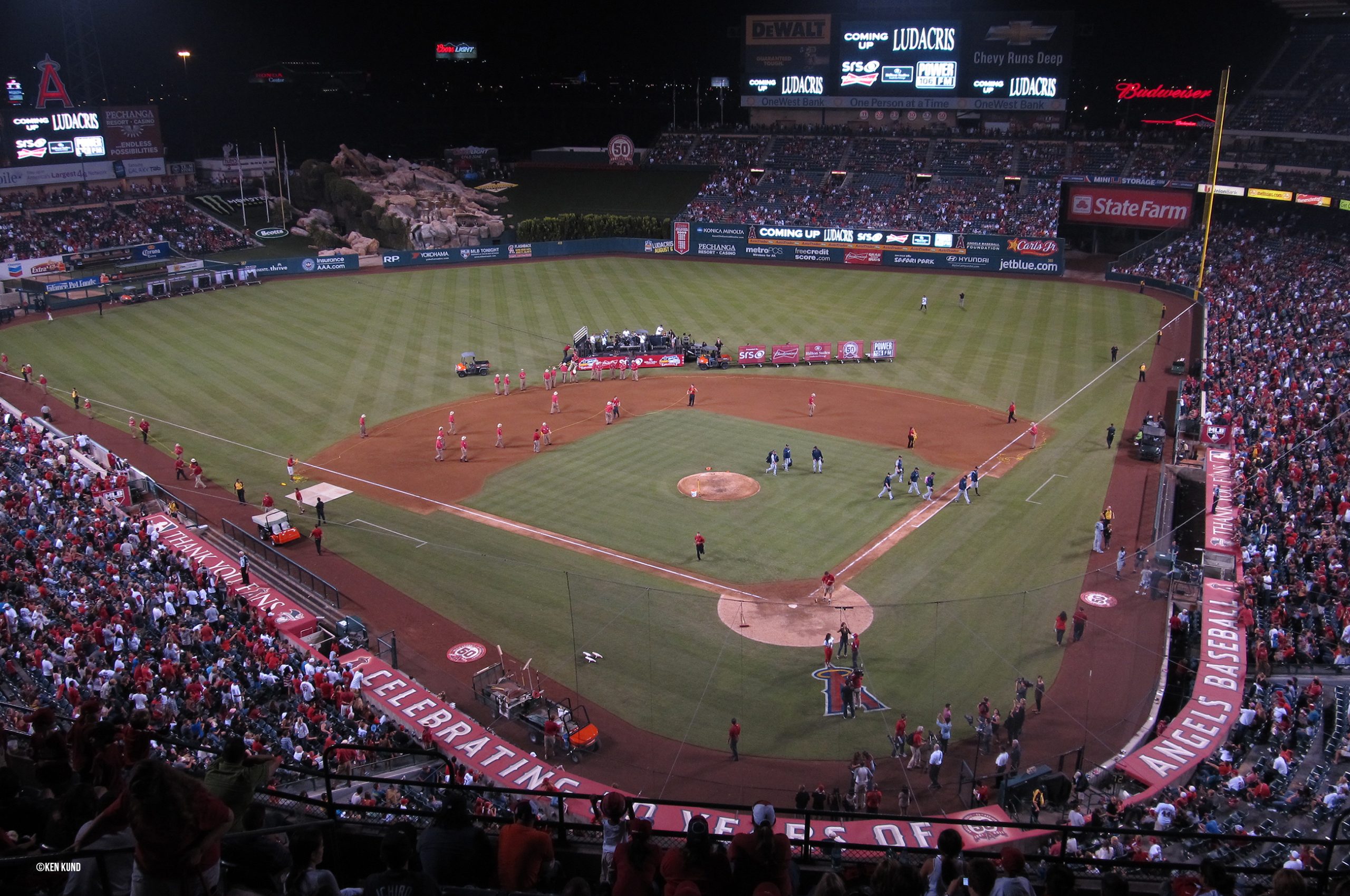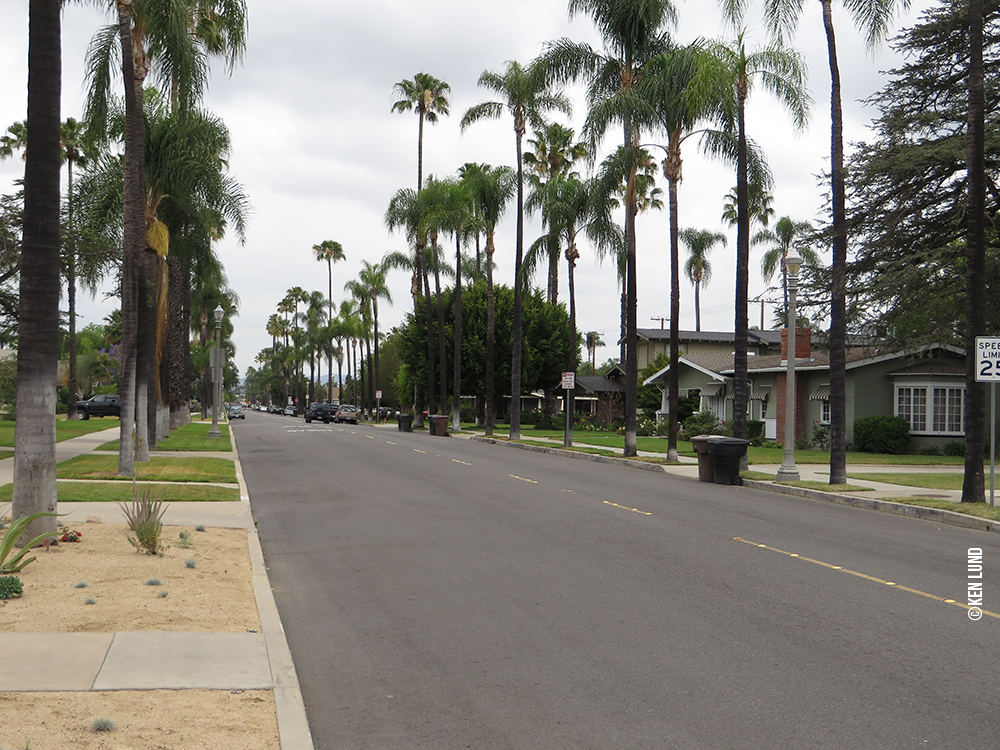“How Far a ‘Freedom Friendly’ City Has Strayed” was an appropriate observation about Anaheim in 2016 – and it still works today.
Back then, The Orange County Register was condemning the city’s war on short-term rental sites like Airbnb and VRBO. That issue seems so quaint now in the face of the city’s current troubles that have left the city mayor-less, incurring nearly $100 million in fines and facing an FBI investigation that is dismantling a “cabal” of powerbrokers.
But the severity of today’s troubles only highlight how far the city has fallen along a steady, gradual descent.
In the early 2000s after being elected mayor, Curt Pringle and Councilman Tom Tait (see accompanying interview) sought to change “business as usual” by moving away from the command-and-control method of city planning that’s all too common in American urban areas. Among other things, Pringle, a former speaker of the California Assembly, opposed the idea of using eminent domain to seize property to develop a new city center.
Instead, the council majority unleashed a free-market agenda that included deregulation, fees waivers and “upzoning” that would spur redevelopment by encouraging competition among private businesses that would pay market rate for properties and then develop them to their highest and best use. That included a mix of retail, residential and office space surrounding the homes of the Anaheim Angels and Ducks professional hockey team.
It was a smashing success, which continued when Tait succeeded Pringle as mayor. Tait’s tenure was highlighted by a “reset” of relations with Disney that included the death of a $267 million hotel subsidy and a 45-year moratorium on the possibility of a gate tax on visitors (not that the tax was on the table).

Labels Matter, Definitions Matter Too
But the city began to retreat from its free-market approach, which devolved into full-blown cronyism by the time Harry Sidhu was elected mayor. Often when critics complain of capitalism, they aren’t really complaining about capitalism as much as they are crony capitalism.
Capitalism is a system where trade is controlled by private owners instead of the state. By contrast, crony capitalismfavors individuals and businesses with political connections and influence who get preferential treatment that undermines competition and the free market – like that $267-million hotel subsidy. Both have capitalism in the name but that is where the similarities end.
Rise of the Crony Capitalists
As time went by, Anaheim’s outside interests became more powerful and more influential. The freedom-loving city became a shill for big business and unions. It manifested itself in various ways, like a pricey and underused train terminal to service the yet-to-be-built High Speed Rail line and a failed bid by the City Council to lease the $225-million land surrounding Angels’ Stadium to the baseball club for $1.
While Anaheim is the 10th-largest city in California and a diverse home to around 346,000 people, it’s very much a company town. A report from 2017 cited in the Los Angeles Times noted that Disneyland Resort accounted for 19 percent of Anaheim’s jobs and contributed $171.9 million in tax revenue, which was 43 percent of the city’s general fund revenue.
To protect its interests, Disney often spends nearly $1 million dollars in local elections. By contrast, political spending in neighboring (and similarly sized) Santa Ana’s elections in 2020 saw top donors giving in the five-digit range.
It works in a perverse sort of way: Disney’s interests are protected. The same Times article from 2017 reported that as Disney’s profits soared, it “secured subsidies, incentives, rebates and protections from future taxes in Anaheim that, in aggregate, would be worth more than $1 billion.” While the Angels parking lot deal fell through, Disney leased a parking garage from the city for $1, which cost the city $108.2 million to build.
Disney remains quite popular in Anaheim, but voters in 2016 tried checking Goliath’s power by electing a City Council majority that was skeptical of the Big Business sweetheart deals. With the mayoral victory of former crony-capitalist-skeptic Harry Sidhu just two years later shifted power back to a cabal of power brokers that included Disney, the Anaheim Chamber of Commerce and political consultants.
Feds Come to Town
Earlier this year, everything came crashing down. Among the things the FBI monitored was a deal negotiated by Sidhu – who had convinced the city council to make him the sole negotiator – to sell Angel Stadium to the team’s ownership group for what was supposed to be $325 million.
The sale price was reduced to $170 million with the discount considered a development credit – but an appraisal estimated the land’s value at $500 million. Sidhu eventually resigned while the FBI continued its investigation. Though he maintains his innocence and he hasn’t been charged with any crime, one of the allegations against him was that during the Angel Stadium negotiations he leaked information to the team’s ownership and sought as much as $1 million in political spending.
The chamber’s former CEO Todd Ament was indicted on fraud and financial charges related to a business loan and mortgage on a second home. As part of the cabal, Ament held great sway over Sidhu, as did political consultant Jeff Flint, who even wrote Sidhu’s speeches, and who has taken a leave of absence from his firm (while also denying any wrongdoing). Both had received lucrative contracts from the city.
As a result of a settlement with the state, Anaheim will not have to pay $96 million in fines over the stadium deal but will have to set aside that much money instead to develop affordable housing. That resolved the state’s findings that the stadium deal violated the State Surplus Land Act, which requires cities with surplus land to first make it available to affordable-housing developers.
Besides one of its representatives being considered one of the members of the cabal, Disney has not been implicated in any wrongdoing and the current scandal does not involve the company. The Angels have not been implicated, either. City leaders, however, chose to abandon the city’s values and the free market in exchange for special deals as they sought to help powerful business interests. That’s the main takeaway from the current fracas.
This is by no means a comprehensive list of the fallout, but it paints a picture. Was it worth it? Of course not. Crony capitalism is often justified by the fear a pillar of the economy either won’t come to the city or won’t stay.
In Disney’s case, it’s hard to see the giant leaving, especially if COVID didn’t drive it away. There just aren’t that many places with perpetual nice weather in the middle of a five-county region of approximately 21 million people that is also a global destination. The entire Resort District centers around the theme park’s presence.
The Angels might still relocate, but there likely is no shortage of businesses and visionaries who would see the potential opportunities at the prime stadium site. Angels owner Arte Moreno says he may now sell the team in the wake of the derailed stadium sale, but such a threat no longer carries the same weight as before the scandal.
Capitalist principles worked before and would work again. If Anaheim officials need a roadmap forward, they need only look back to its relatively recent past.
Matt Fleming is a senior account executive for Grassroots Lab and a columnist for The Orange County Register.

